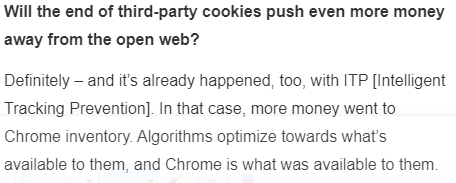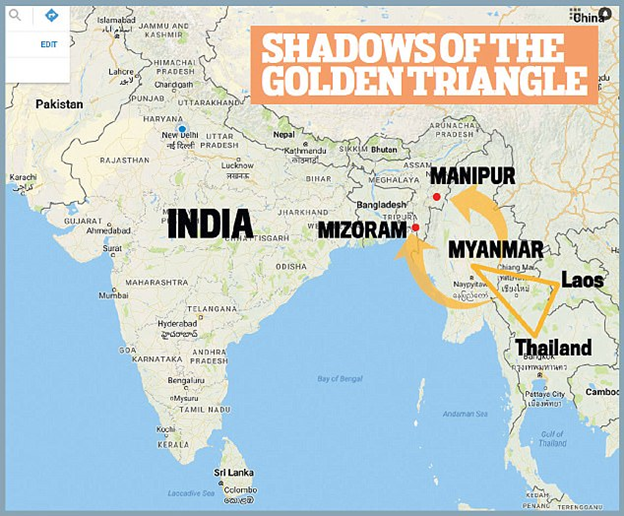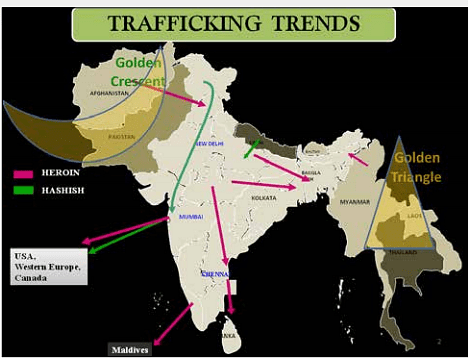This interview from @OSchiffey has great quotes that directly refute the nonsense that many privacy advocates spout about how the death of cross-site tracking will help ad-supported publishers on the open web. https://t.co/bj1gWPKOei 1/


More from Finance
Below are some updated thoughts on potential integrations, improvements, and innovations for Saffron moving forward. ⬇️
1/11 @saffronfinance_ ($SFI) is DeFi's new kid on the block with its tranched yield product that is already live with DAI on @compoundfinance. https://t.co/JpqnxhwrDw
— Benjamin Simon (@benjaminsimon97) November 19, 2020
2/18 First, if you haven't seen @Privatechad_'s alpha-leaking introductory thread, you should check it out.
I agree that @AlphaFinanceLab and @CreamdotFinance, specifically the Iron Bank, would be ideal targets for SFI risk tranches.
15/. 3. Though not the focus atm, interest from various projects and integrations are happening.
— Private Chad (@Privatechad_) February 1, 2021
* Chainlink reached out (props to the amazing $LINK team).
* Talks with $ALPHA and rumored upon V2 releases there will be a collaboration.
*Cream integrations in v2
* $COMP tranches pic.twitter.com/IXCtzvSkw7
3/18 Speaking more broadly, Saffron is primarily integrated with @compoundfinance, which has served as a MVP of sorts.
The thing is, Compound is one of the safest (but also lowest yield) protocols in DeFi, so it's not surprising that there isn't much demand for the sen. tranche.

4/18 Expanding beyond Compound to higher-risk/higher-return protocols has always been key.
These protocols are the bread-and-butter target market for Saffron, and I would expect to see a surge in demand for senior tranche staking in these
4/11 Imo, the golden egg will be vault platforms like @iearnfinance, @picklefinance, etc.
— Benjamin Simon (@benjaminsimon97) November 19, 2020
Recently, some of these higher risk platforms (e.g. @harvest_finance) have been hit with a wave of attacks.
Saffron will enable cautious investors to use these products with peace of mind.
5/18 Additionally, @DeFiGod1 convinced me that Senior Tranche pools would be more appealing if they offered fixed yield.
Essentially, Saffron would augment the product offerings of @Barn_Bridge by also offering senior stakers insurance in the form of junior tranche collateral.
You May Also Like
The story doesn\u2019t say you were told not to... it says you did so without approval and they tried to obfuscate what you found. Is that true?
— Sarah Frier (@sarahfrier) November 15, 2018
In the spring and summer of 2016, as reported by the Times, activity we traced to GRU was reported to the FBI. This was the standard model of interaction companies used for nation-state attacks against likely US targeted.
In the Spring of 2017, after a deep dive into the Fake News phenomena, the security team wanted to publish an update that covered what we had learned. At this point, we didn’t have any advertising content or the big IRA cluster, but we did know about the GRU model.
This report when through dozens of edits as different equities were represented. I did not have any meetings with Sheryl on the paper, but I can’t speak to whether she was in the loop with my higher-ups.
In the end, the difficult question of attribution was settled by us pointing to the DNI report instead of saying Russia or GRU directly. In my pre-briefs with members of Congress, I made it clear that we believed this action was GRU.



























